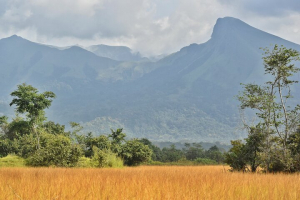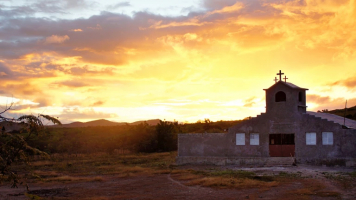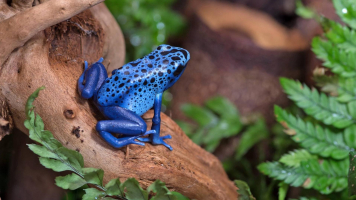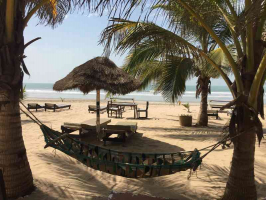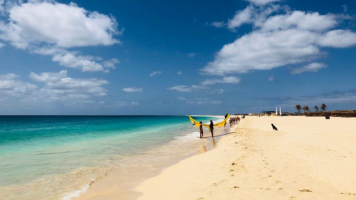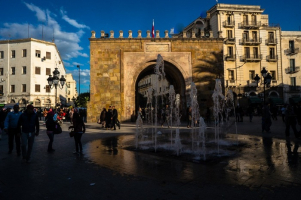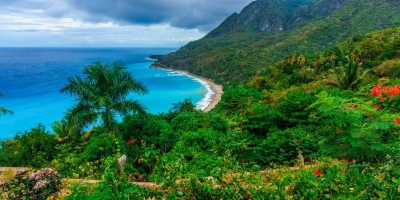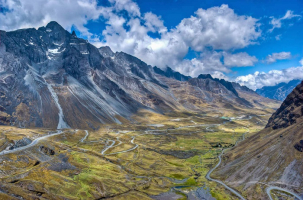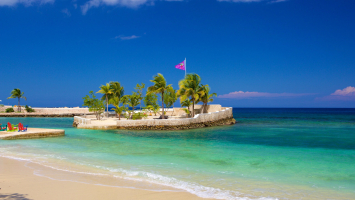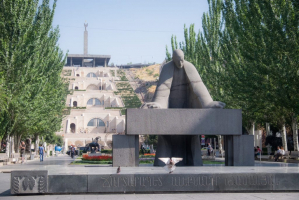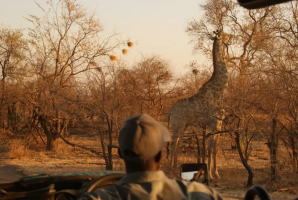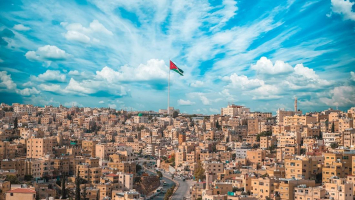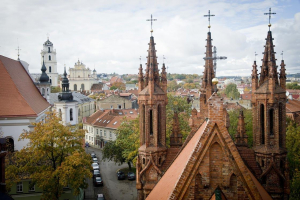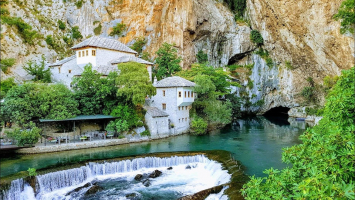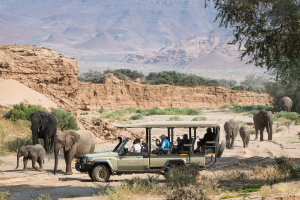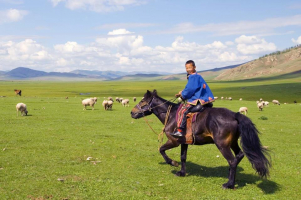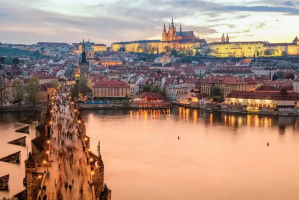Top 10 Best Travel Destinations in Benin
Benin, officially the Republic of Benin, is a West African country, formerly known as Dahomey or Dahomania. Let's learn about the famous tourist attractions of ... read more...Benin!
-
Cotonou may not be the official capital of Benin, but it certainly has the feel of one. The city is an explosive mix of metropolitan vitality and African charm. If you're visiting Africa for the first time, the city might be intimidating and overwhelming, but those ready to take the chance will be rewarded handsomely.
Cotonou is not the actual capital of Benin, but it is the largest city in the country. Coming here, you will feel the vibrant, strong and energetic city known as the economic capital of Benin. You can experience the beautiful paradise beaches with golden sand or go to the Fetish market to sell dead animals prepared for the festivals of the Voodoo religion.
• Location: Benin, Department Littoral, Benin
• Timing: Open all day
• Famous for: brewing, textile production, and palm-oil processing
• Entry Fee: Free
• Best Time To Visit: The weather in Cotonou is ideal for warm-weather vacationers at this time of year.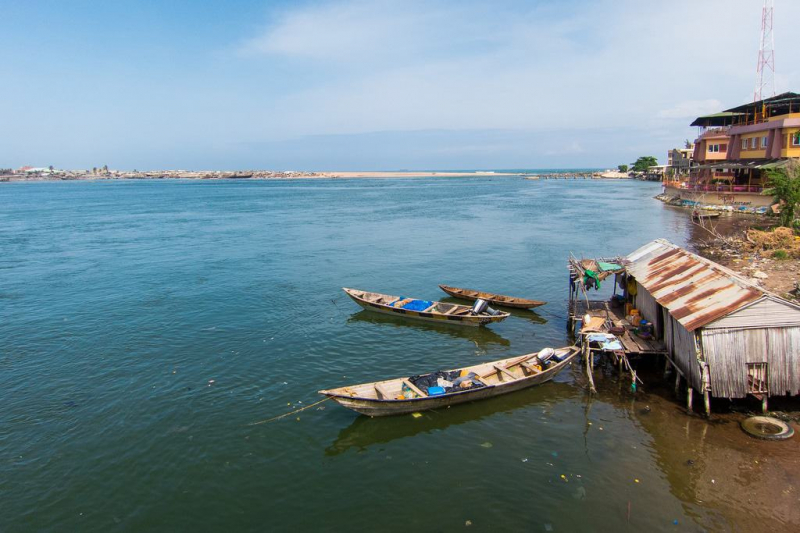
https://www.thecrazytourist.com/ 
https://www.sunpope.com/benin/ -
Ouidah is a city that has a combination of French and Portuguese influences as a result of historical events. The city is around 40 kilometers from Cotonou and is much more laidback. This city should be at the top of your agenda if you are interested in African history (which you should be). It features excellent museums dedicated to slavery and voodoo. If all of the history becomes too much for you, Ouidah also has additional beautiful beaches to relax on.
Ouidah is a city with a mixture of French and Portuguese influences. In contrast to Cotonou, this city is more relaxed and peaceful. If you're interested in African history, this city should be at the top of your itinerary. There are excellent museums here where you can learn about slavery and the Voodoo religion.
• Location: Ouidah, Benin
• Timing: Open all day
• Famous for: excellent museums
• Entry Fee: Free
• Best Time To Visit: The greatest season to visit Ouidah in Benin is from January to December, when temperatures are mild and rainfall is confined to a few inches.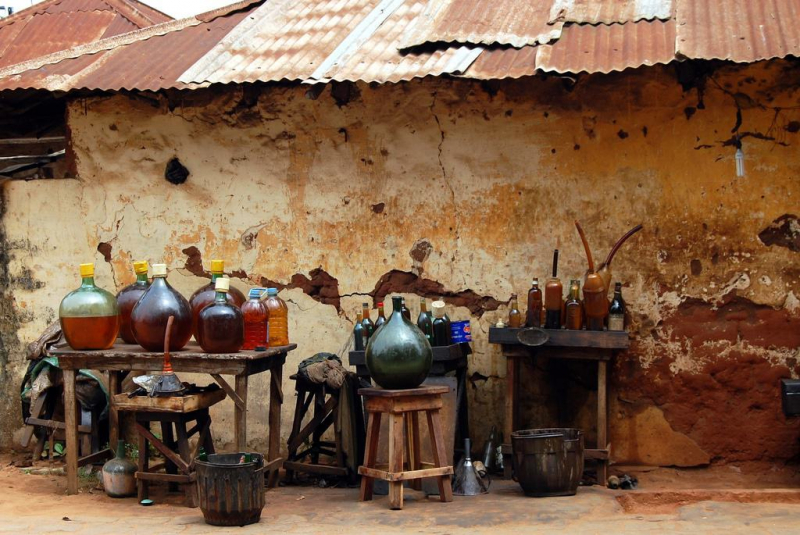
https://www.thecrazytourist.com/ 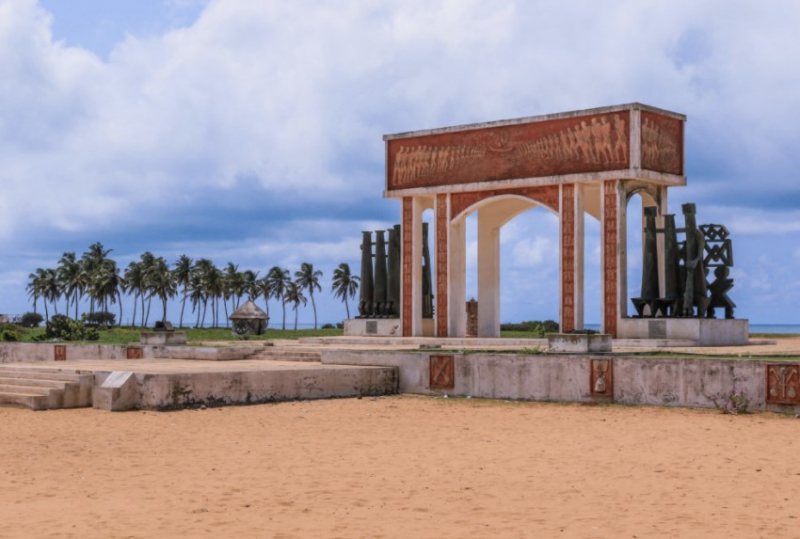
https://www.bradtguides.com/ -
Benin's capital, Porto Novo, is the former French capital of Dahomey. If you've already been to Cotonou, you'll probably find it difficult to comprehend why Porto Novo is the official capital; the population is just approximately 250,000, and the pace is much slower than in Cotonou.
The Portuguese left an indelible mark on this region, which may still be seen today. The city's attractions include the Royal Palace and Gardens, as well as the Porto Novo Kings Museum.
If you've been to Cotonou first, you'll probably be quite surprised that Porto Novo is the official capital city of Benin. The population here is only about 250,000 people and the growth rate is much lower than that of Cotonou. The Portuguese influence in this area is still hard to discern with the Royal Palace and gardens, as well as the museum of kings.
• Location: Porto Novo, Ouémé, Benin
• Timing: Open all day
• Famous for: Benin's Porto-Novo Cathedral It was presumably founded in the late 16th century and is located on a coastal lagoon in the country's far southeast
• Entry Fee: Free
• Best Time To Visit: September-October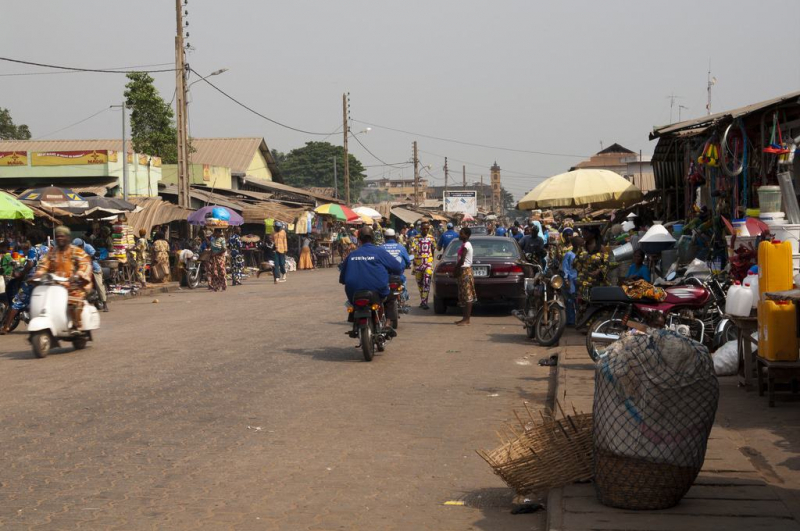
https://www.thecrazytourist.com/ 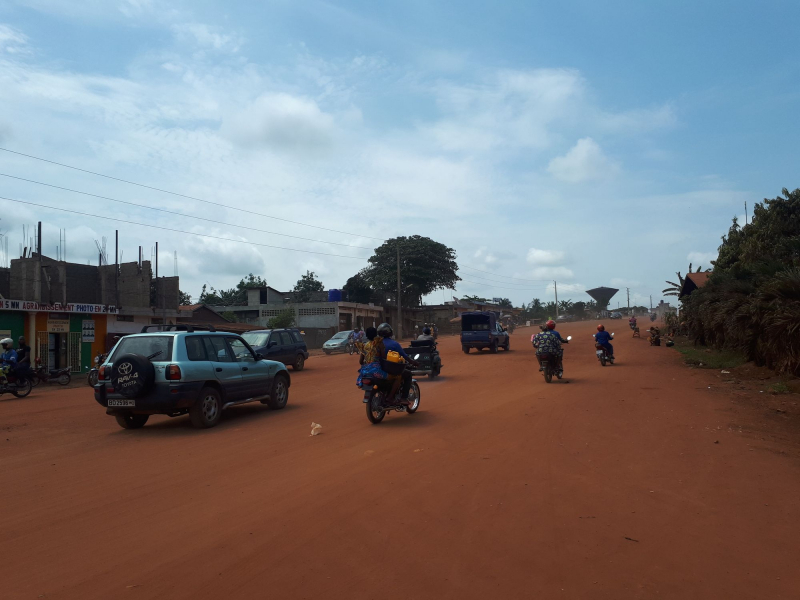
https://dontstopliving.net/ -
Beginning in the 17th century, Abomey served as the capital of Ancient Dahomey for around 300 years. The Abomey Royal Palaces, a Unesco World Heritage Site, is the city's principal attraction and reason for visiting. Despite the fact that the palaces have been entirely demolished and are in a decrepit state, Abomey has immense historical significance, and the stories of the monarchs who previously stayed here are interesting.
Abomey is situated in a region where palm nuts and peanuts (groundnuts) are farmed, and it is linked to Cotonou, the country's primary economic center, and Porto-Novo, the capital, by road and train. With 208 hours of sunshine, this is a perfect season to visit Abomey-Calavi if you prefer staring at blue skies and adore the sun.
• Location: Abomey, Benin
• Timing: Open all day
• Famous for: palm nuts and peanuts
• Entry Fee: Free
• Best Time To Visit: The best times of year to visit Abomey-Calavi for hot-weather activities are from mid-July to mid-September and from mid-December to mid-January, according to the beach/pool score.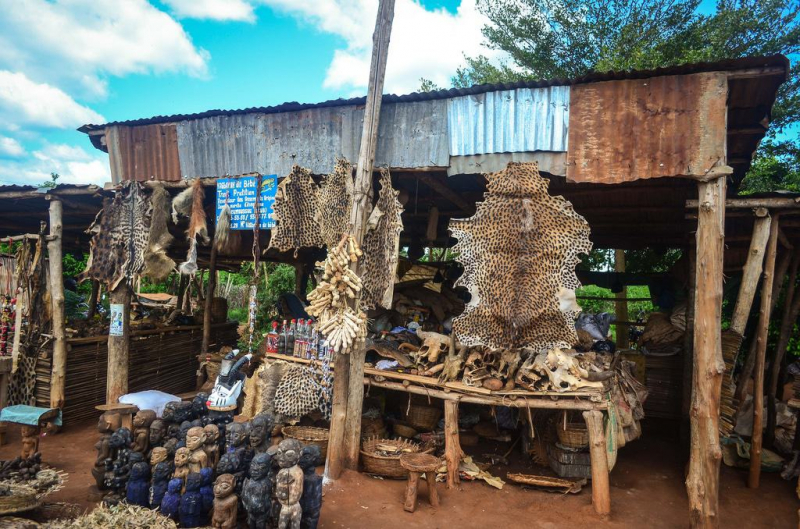
https://www.britannica.com/place/Abomey-Benin 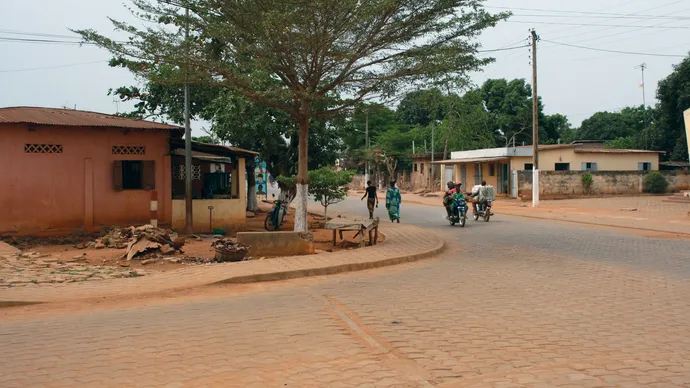
https://www.britannica.com/place -
The town of Grand-Popo has a fascinating history, owing to its pivotal involvement in the slave trade. The village has African beauty, and the locals are welcoming. The village is roughly an hour's drive from Cotonou and provides a welcome respite from the city's bustle.
Grand-Popo's beaches are a nice spot to relax and swim, and there are several backside hotels and resorts. The Mono River, which is close by, is a nice spot to hike and view mangroves and unique bird life.
The highest temperature in May is 32 degrees Celsius, while the lowest temperature is 25 degrees Celsius. In Grand-Popo, May is one of the rainier months.
• Location: Grand-Popo, benin
• Timing: Open all day
• Famous for: beautiful beaches
• Entry Fee: Free
• Best Time To Visit: The average temperature in Grand Popo during this season is approximately 84°F, making it an ideal time to visit. The weather is ideal for spending time outside, with the air being fairly humid.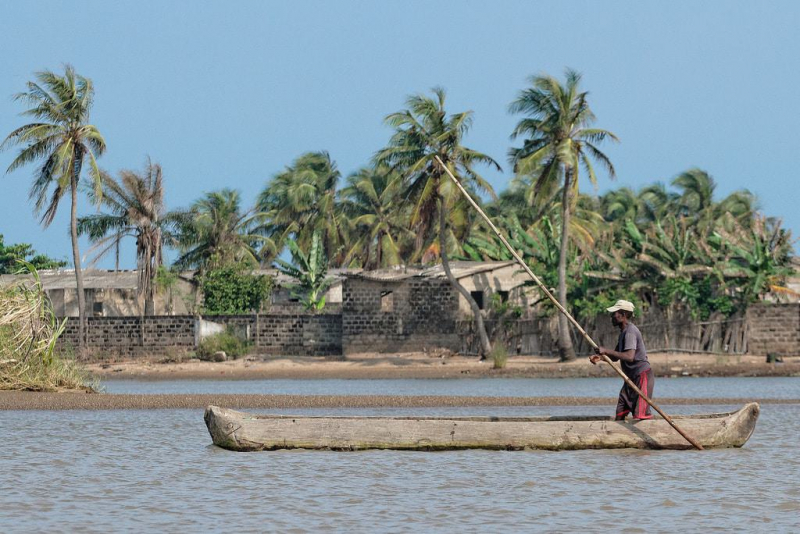
https://www.thecrazytourist.com/ 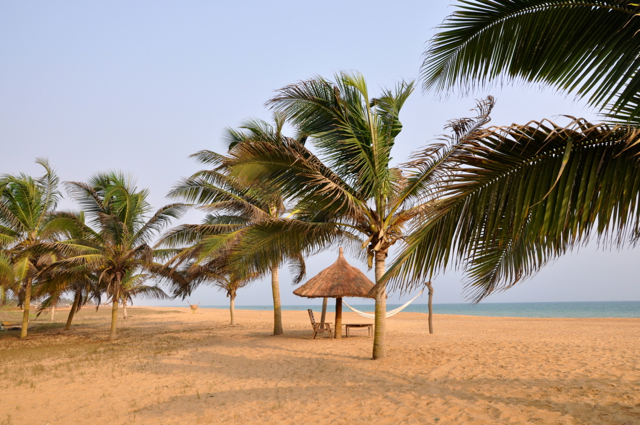
http://www.edgymix.com/ -
The city of Natitingou, which is only 50 kilometers from the Pendjari National Park, has some of its own features that make it a worthwhile stop on a trip to Benin. The city has its own museum, which is housed in a former French colonel's mansion and documents the Somba people's way of life. In reality, Natitingou is one of the greatest spots to witness the Somba people's way of life and construction ways. It's also worth visiting Natitingou to witness how Shea butter is created.
Natitingou lies around 50 kilometers from Benin's Pendjari National Park, where visitors may witness West African animals from December to June. The Kota and Tanougou waterfalls, as well as the massive Betammaribe mud castles known as the Tata Somba, are all within an hour or two of town. The Regional Museum of Natitingou, as well as two marketplaces, are located inside the town.
• Location: the capital of Atakora Department
• Timing: open all day
• Famous for: Kota and Tanougou waterfalls
• Entry Fee: Free
• Best Time To Visit: The ideal time to visit Natitingou for hot-weather activities is from mid-November to mid-February, according to the beach/pool score.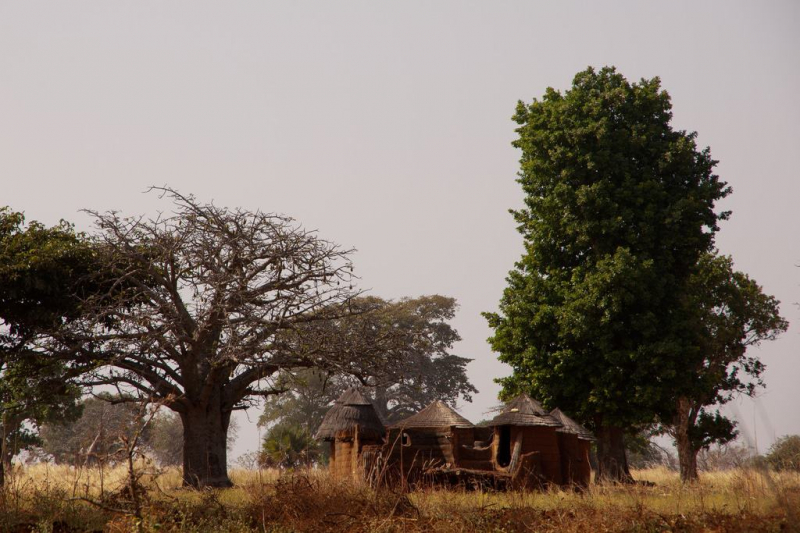
https://www.thecrazytourist.com/ 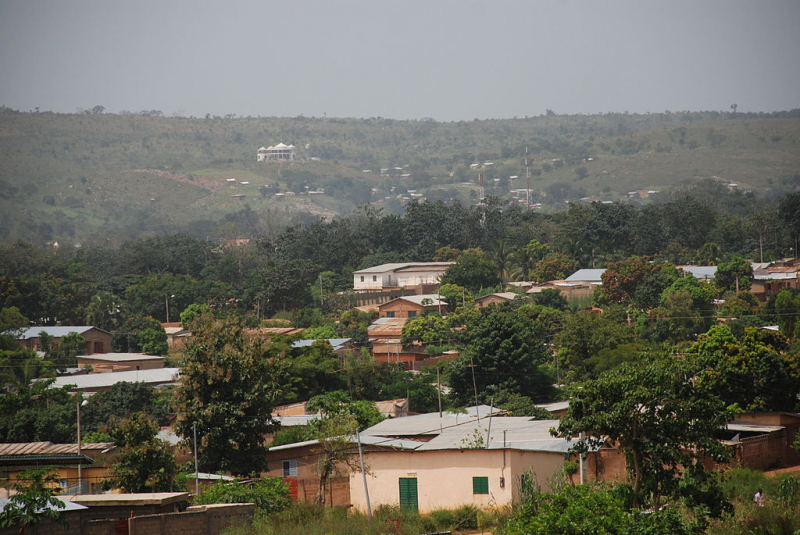
https://en.wikipedia.org/ -
Bohicon is more of a stopover than a destination to visit for a lengthy amount of time. Although the town is virtually entirely new, it is definitely worth visiting the market, which is undoubtedly Benin's largest and best. The contrast between the busy market and neighbouring Abomey's relative stillness is stunning. Afitin is a local specialty that may be sampled at Bohicon's Maquis Malodie Market.
The main market in Bohicon sells everything from traditional West African apparel and voodoo charms to local handcrafted musical instruments. Then head to the Maquis Malodie market to experience central Beninese food, which includes the specialty spice afitin, a fermented condiment prepared by women from the nearby communities.
• Location: Bohicon, Zou, Bénin
• Timing: Open all day
• Famous for: The main market in Bohicon
• Entry Fee: Free• Best Time To Visit: Early December to late January is the best time of year to visit Bohicon for hot-weather activities, according to the beach/pool score.
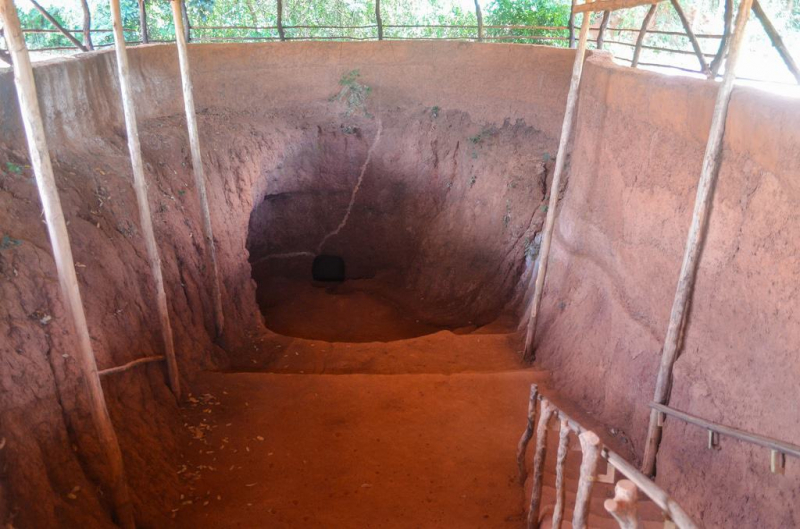
https://www.thecrazytourist.com/ 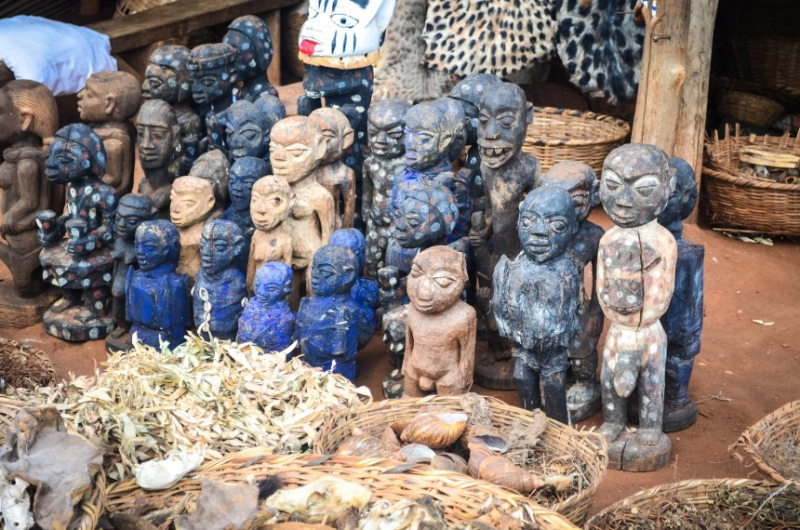
https://www.tourhq.com/ -
This lovely village in Benin is an excellent spot to observe colonial French architecture. Tanguieta has a limited population, with just roughly 20,000 people living there.
Tanguieta boasts a bustling market, though it isn't as bustling as Bohicon's, and is an excellent base for visiting the Tonogou Waterfalls or the Pendjari National Park, which is home to some of Africa's most majestic beasts, including lions, hyenas, and elephants, to mention a few.
The charming town of Tanguieta is a great place to visit the French colonial buildings in Benin. In Tanguieta, you can visit this lively central market or explore the Tonogou waterfall or Pendjari National Park.
• Location: Tanguieta, Benin
• Timing: Open all day
• Famous for: French colonial buildings
• Entry Fee: Free
• Best Time To Visit: The ideal time to visit Tanguiéta is in December, based on the climate and weather.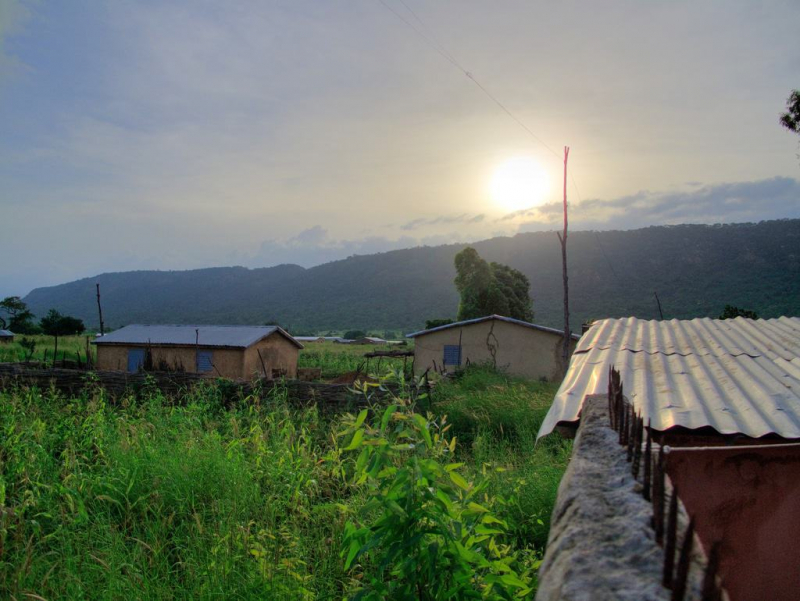
https://www.thecrazytourist.com/ 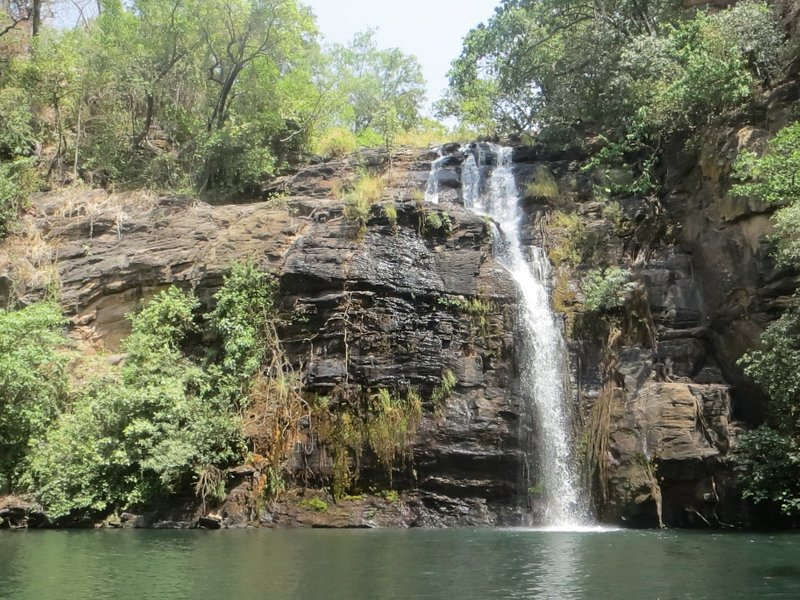
https://www.tripadvisor.com/ -
Parakou is Benin's second biggest city, with a population of 200,000 people. Due to more open areas and broader streets, the city does not feel as crowded as Porto Novo or Cotonou, despite its size. Cotton, textiles, and peanut oil account for the majority of the city's economy. The open-air museum, which displays traditional Bariba architecture, and the market, which specializes in a particular type of beer, are both interesting stops in Parakou.
However, you will feel that this place is not as crowded and bustling as Cotonou thanks to the open space and streets. Here you can visit an open-air museum showcasing traditional Bariba architecture and a market specializing in the signature local beer.
• Location: Parakou, Benin
• Timing: Open all day
• Famous for: Shooting ranges, skydiving, water sports, snorkeling, and scuba diving are all popular activities in Parakou
• Entry Fee: Free
• Best Time To Visit: If you're searching for the hottest months to visit Parakou, March, February, and April are your best bets.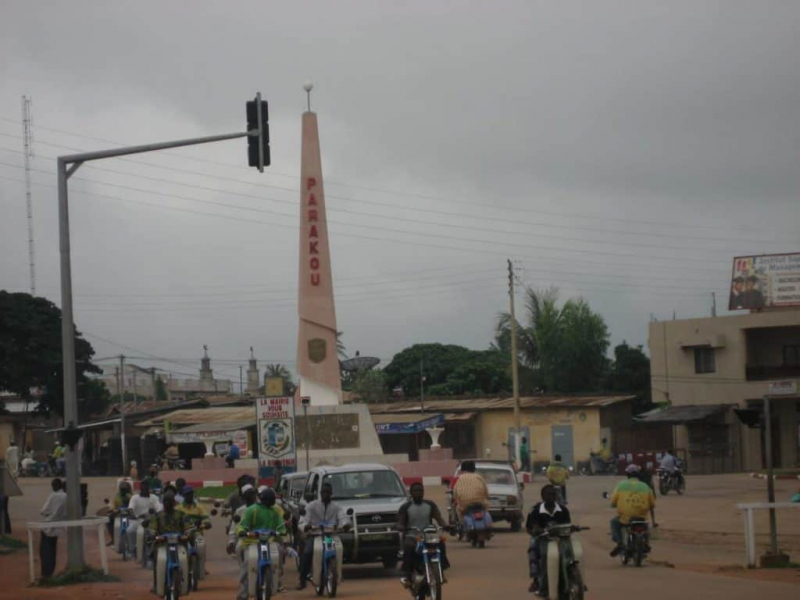
https://www.thecrazytourist.com/ 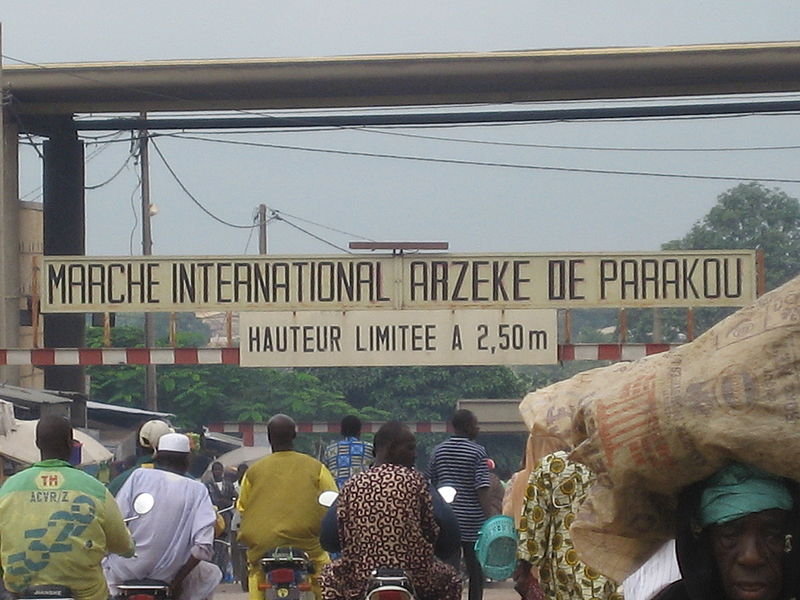
https://www.wikiwand.com/en/Parakou -
Birdwatching is excellent at Lake Nokoue and small village. The African Openbill and the white crested heron are among the species that make this 16,000-hectare lake home. Several environmental and biological challenges, including as logging, pollution, and animal hunting, are threatening the lake. Conservation efforts are underway, but the threat level is high, so take advantage of the opportunity to see this incredible place while you still can.
Covering an area of 16,000 hectares, Lake Nokoue is a great place to discover the life of birds like the African Openbill or the crested heron. Currently, Lake Nokoue is threatened by environmental pollution and wildlife hunting and conservation efforts are underway.
• Location: Nokoue, Benin
• Timing: Open all day
• Famous for: a notable bird-watching location
• Entry Fee: Free
• Best Time To Visit: When the surrounding lands are inundated for a few weeks each year during the rainy season, the lake's size is quadrupled.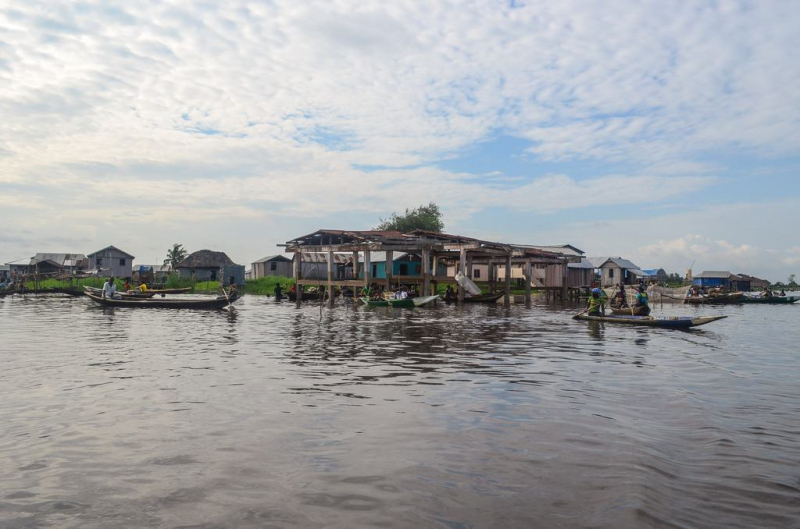
https://www.thecrazytourist.com/ 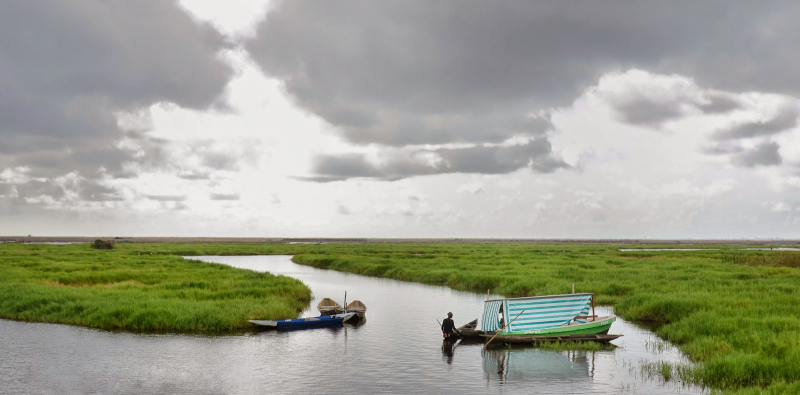
http://beininbenin.blogspot.com/












